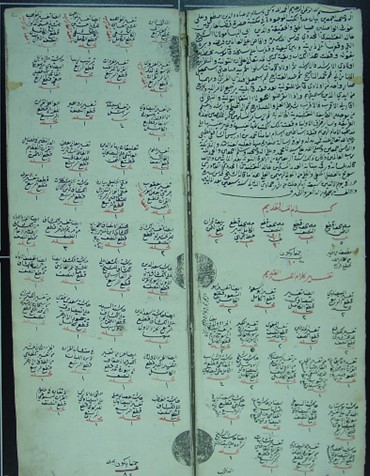Beyond Text: Books as Social Artefacts in Early 19th-Century Damascus
Traces of Khālid al-Naqshabandī's Endowed Library
2023–2025
RFC11

This project focuses on the history of an endowed library that was once located in Damascus and belonged to a Ṣūfī Shaykh from the early 19th century named Khālid al-Naqshabandī.
In the early 19th century, al-Naqshabandī relocated from Iraq to Damascus and established a madrasa for the disciples of the Naqshbandiyya-Khālidiyya order. Within this madrasa, he housed an extensive collection of over a thousand manuscripts. The remnants of this library — namely the inventory and the extant yet-identified manuscripts from his collection — offer a unique opportunity to explore the book culture, circulation, mobility, and endowment practices of that period.
Building upon this historical foundation, the project adopts a comprehensive approach to understanding the social and cultural dynamics surrounding this library. It does so by incorporating paratextual materials and primary sources such as legal records, biographical texts, and chronicles. A crucial source is manuscript No. 259, housed in the National Library in Damascus, which includes the aforementioned inventory, the endowment text, and court session minutes. This manuscript, titled ‘Books’ Register of our Great Shaykh Khālid al-Naqshaband)’ (daftar kutub ḥaḍrat mawlānā), is vital for understanding the social history of the library through the documentation of endowment practices and legal procedures. Furthermore, the extant yet-identified manuscripts serve as primary sources for examining object biographies, mobility, and materiality.
By employing this interdisciplinary methodology, the project seeks to situate the library within the broader social and intellectual landscape of 19th-century Damascus, highlighting its significance within that historical context.
People
Project lead: Joud Nassan Agha
